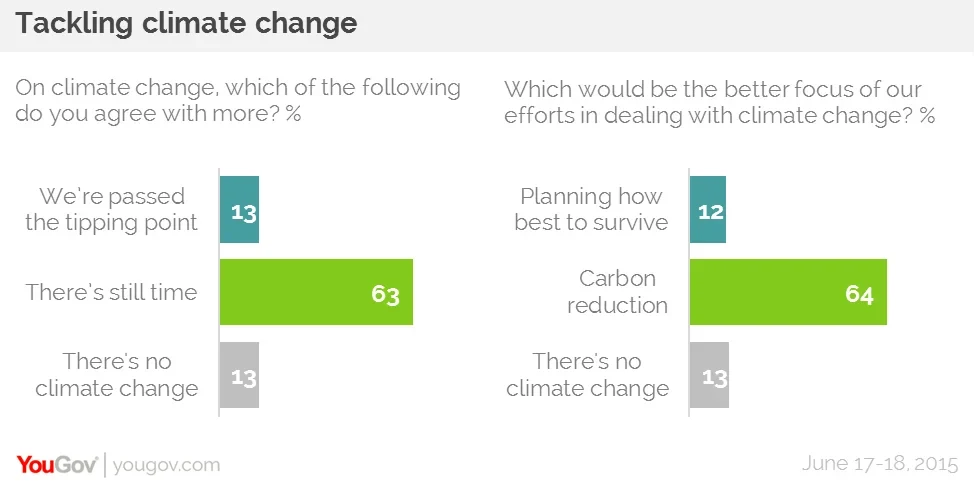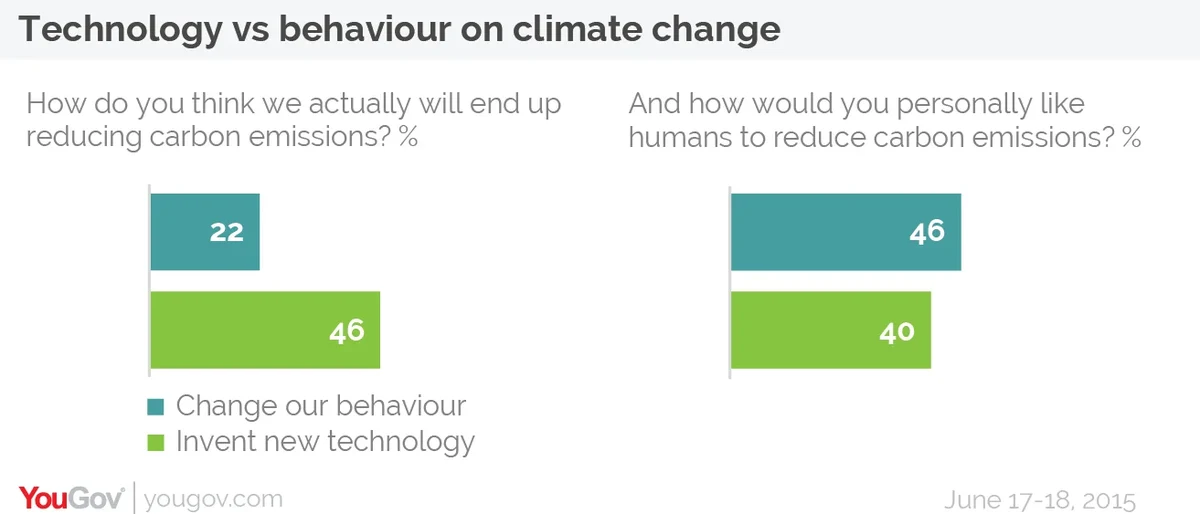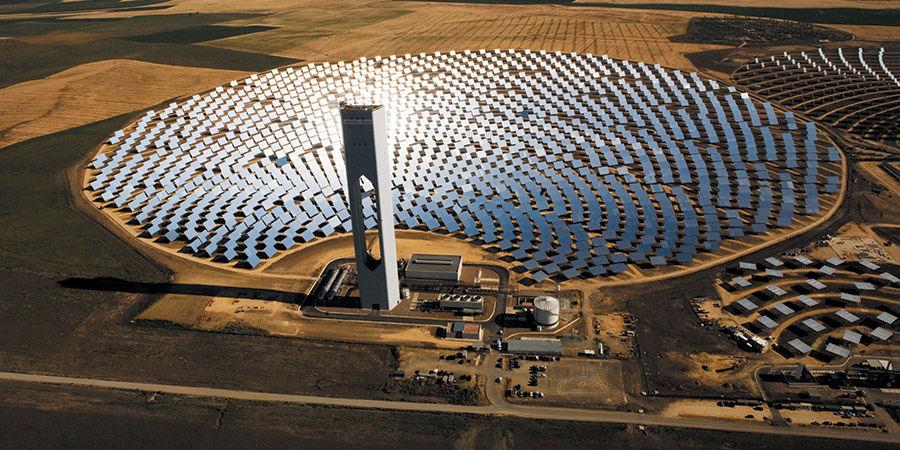British people don’t think we’re past the tipping point on climate change yet – but we expect new technologies to do more good than behavioural changes
Ahead of a pivotal UN summit on climate change later this year, Pope Francis has made a unique intervention into the climate debate, backing scientists who say the effects are mainly man-made and allocating particular responsibility on developed countries. Republicans in America have been critical of the Pope’s political interference, but there is little doubt the move will be influential.
Pope Francis says it is not too late for mankind to avert disaster, even at a time when migration to Europe from Africa has intensified and many worry this will only increase as the Earth warms. British people share the Pope’s optimism, new YouGov research reveals.
63% of the public say there’s still time to avert disaster if we react appropriately and 64% say our focus should be on reducing carbon emissions before it’s too late rather than planning how best to cope with a coming crisis.

This view is at odds with climate pessimists who argue that global warming is now irreversible and will result in large parts of the planet becoming uninhabitable, causing mass migration, famine and disease.
Gaia Theory and public opinion
According to James Lovelock, whose influential Gaia Theory depicts the earth as a self-regulating organism, it’s too late for in vogue measures such as ethical consumption, carbon offsetting and recycling – ‘necessity is the mother of invention’, so humans must invent their way out of extinction.
When asked to set aside personal preferences and think about how humans will actually end up reducing carbon emissions, by 46-22% British people think new technologies will be the solution rather than voluntary changes in our behaviour. Adding preferences back into the mix, people tend slightly to wish behavioural changes would do the trick (46-40%).

Lovelock advocates nuclear energy as a technology already able to replace fossil fuels. Setting preferences aside again, the public tend to think it is nuclear that has the capacity to solve carbon dependency over other low-carbon forms (21% compared to hydro on 17% and solar on 15%), despite this being third down the list when asked their own first choice.
2014 was the warmest year on record, and 14 out of the 15 hottest years have been this century. Meetings in Switzerland earlier this year to agree on a formal draft text for negotiations at the 2015 UN Climate Change Conference in Paris were constructive, however delegates acknowledged that the real work is still to come. The Paris conference aims to achieve a legally binding convention on climate change from all nations in the world, with the aim of limiting average global surface temperature increases to 2 degrees C above pre-industrial levels.










